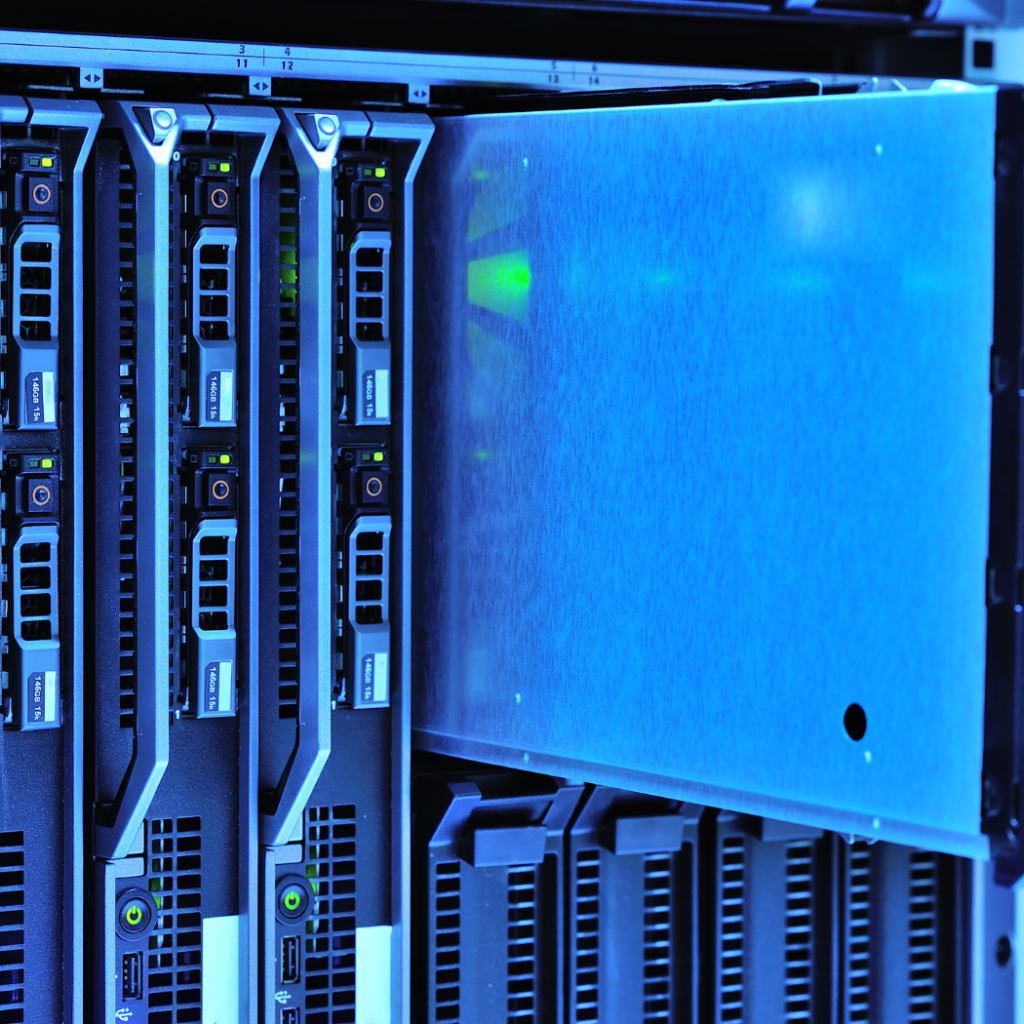Quantum computing stands at the intersection of physics, computer science, and mathematics, representing one of the most significant advancements in modern technology. While traditional computers rely on bits to perform calculations, quantum computers use quantum bits, or qubits, which can exist in multiple states at once. This ability opens up a whole new world of possibilities, from simulating complex chemical reactions to solving problems in seconds that would take classical computers millions of years. In this article, we will explore the basics of quantum computing, its potential applications, challenges, and the road ahead.

What is Quantum Computing?
Quantum computing harnesses the principles of quantum mechanics to perform computations. Unlike classical computing, which processes data as bits (either 0 or 1), quantum computing uses qubits, which can exist in a state of superposition. Superposition means a qubit can be in multiple states simultaneously, rather than just one. This ability to represent and process multiple possibilities at once is what gives quantum computers their power.
Additionally, qubits can be entangled, meaning the state of one qubit can be directly related to the state of another, no matter the distance between them. This phenomenon is called quantum entanglement, and it is a key factor that allows quantum computers to solve certain problems much faster than classical computers.
Quantum computers rely on three fundamental principles of quantum mechanics:
- Superposition: As mentioned earlier, superposition allows qubits to be in multiple states at once. This enables quantum computers to explore many solutions simultaneously, drastically increasing their computational power.
- Entanglement: Entangled qubits are linked together, meaning that the state of one qubit can depend on the state of another, even if they are far apart. This is the foundation for quantum parallelism and enables the processing of large volumes of data in parallel.
- Quantum Interference: Quantum interference allows quantum computers to combine probabilities and cancel out incorrect solutions while reinforcing the correct ones. This ensures that quantum computers can arrive at the correct solution efficiently.
These quantum properties allow quantum computers to potentially solve problems that are intractable for classical computers.
How Quantum Computing Works
At the heart of quantum computing is the qubit. While classical computers store data as bits (either 0 or 1), qubits use quantum mechanical properties such as superposition and entanglement to store and process data. A quantum computer uses quantum gates to manipulate qubits, similar to how classical computers use logical gates to manipulate bits.
The process starts with a quantum processor, which houses an array of qubits. These qubits are manipulated and entangled using quantum gates, which perform operations like flipping the state of a qubit (from 0 to 1 or vice versa). Quantum gates are represented by matrices that alter the state of qubits in specific ways, and when multiple qubits are entangled, they can represent a vast number of states simultaneously.
After the qubits are manipulated through quantum gates, the quantum computer measures the qubits. This measurement collapses the superposition of states into a single, definite state, which provides the answer to the computation. This process is probabilistic, meaning that multiple runs may be needed to obtain the correct result.
The challenge in building a quantum computer lies in maintaining the qubits’ delicate quantum state. Quantum systems are extremely sensitive to external noise and interference, and the qubits must be isolated from their environment to prevent decoherence, which can lead to errors in the computation.
Applications of Quantum Computing
Quantum computing has the potential to revolutionize many industries by solving problems that are currently beyond the reach of classical computers. Some of the most promising applications include:
1. Cryptography
One of the most talked-about applications of quantum computing is its ability to break traditional encryption systems. Current encryption algorithms, such as RSA, rely on the difficulty of factoring large numbers, a task that is computationally expensive for classical computers. However, quantum computers, using Shor’s algorithm, can factor large numbers exponentially faster than classical computers, posing a threat to current encryption methods.
On the flip side, quantum computing can also pave the way for quantum encryption, such as quantum key distribution (QKD). QKD leverages quantum principles like superposition and entanglement to create ultra-secure communication channels that are nearly impossible to eavesdrop on. This is because any attempt to measure the quantum state of a system will alter it, making it detectable.
2. Drug Discovery and Healthcare
The ability to simulate complex molecular interactions is another area where quantum computing can have a profound impact. Classical computers struggle to simulate the behavior of large molecules, especially when considering the interactions of electrons. Quantum computers, with their ability to model quantum states and interactions, could revolutionize drug discovery by simulating chemical reactions at an atomic level, leading to faster development of new medicines and therapies.
Quantum computing could also improve diagnostic tools and personalized medicine. By analyzing large datasets more efficiently, quantum computers could help in identifying patterns in genetic data, leading to more effective treatments tailored to individuals.
3. Optimization Problems
Optimization problems are prevalent in many industries, from logistics and transportation to finance and manufacturing. For example, companies often need to find the most efficient routes for delivery trucks or optimize supply chains to minimize costs. Classical algorithms struggle with these problems as the number of possible solutions increases, especially in complex systems.
Quantum computing offers a solution through quantum optimization algorithms. These algorithms, such as the Quantum Approximate Optimization Algorithm (QAOA), can efficiently find the best solution to optimization problems by leveraging quantum parallelism and interference.
4. Artificial Intelligence and Machine Learning
Artificial intelligence (AI) and machine learning (ML) are fields that stand to benefit significantly from quantum computing. Quantum computers can process vast amounts of data in parallel, enabling faster training of machine learning models. Quantum machine learning algorithms could accelerate tasks such as pattern recognition, classification, and clustering, leading to more advanced AI systems.
Moreover, quantum computing could also help in optimizing AI models, improving the efficiency of algorithms, and enabling new AI techniques that are not feasible with classical computing.
5. Climate Modeling and Sustainability
Climate modeling requires processing large amounts of data to simulate complex atmospheric and environmental systems. Quantum computers have the potential to improve the accuracy of climate models by simulating the interactions of particles at a much more granular level than classical computers can.
This could lead to better predictions of climate change, more efficient energy production, and advancements in sustainable technologies. For example, quantum computing could help design more efficient solar cells, optimize energy storage systems, and create new materials for carbon capture.

Challenges Facing Quantum Computing
While the potential of quantum computing is enormous, there are several challenges that need to be addressed before it can become mainstream.
1. Quantum Error Correction
Quantum computers are highly susceptible to errors due to the fragile nature of qubits. A small disturbance in the environment can cause qubits to lose their quantum state, leading to errors in computations. To build a reliable quantum computer, researchers are working on quantum error correction techniques that can detect and correct these errors in real-time.
However, quantum error correction requires a large number of physical qubits to represent a single logical qubit, which significantly increases the resources needed for building a fault-tolerant quantum computer.
2. Decoherence
Decoherence occurs when a quantum system loses its quantum properties due to interaction with its environment. Since qubits are highly sensitive to their surroundings, maintaining coherence long enough to perform meaningful calculations is a major challenge. Researchers are exploring various methods to mitigate decoherence, such as using superconducting qubits or trapped ions.
3. Scalability
Building a quantum computer with a large number of qubits is a monumental task. The more qubits there are, the more complex the system becomes. Scaling up the number of qubits while maintaining their coherence and minimizing errors is a significant hurdle in quantum computing.
4. Hardware Limitations
Currently, there are several competing approaches to building quantum computers, including superconducting qubits, trapped ions, and topological qubits. Each approach has its advantages and challenges, but none have reached the level of maturity required for large-scale quantum computing. The development of quantum hardware is still in its early stages, and much work remains to be done to create stable, scalable quantum processors.
The Future of Quantum Computing
Quantum computing is still in its infancy, but the potential is vast. Leading companies such as IBM, Google, and Microsoft, along with academic institutions and startups, are investing heavily in the development of quantum hardware, software, and algorithms. Governments around the world are also funding quantum research, recognizing its strategic importance for national security, economic growth, and scientific advancement.
While large-scale, fault-tolerant quantum computers may still be years or even decades away, the progress made in recent years is encouraging. Quantum computers are already demonstrating their ability to solve certain problems faster than classical computers, and as the technology continues to mature, it will likely transform industries across the globe.
In the near term, we can expect to see quantum computing used for specific tasks, such as optimizing supply chains, simulating chemical reactions, and improving machine learning algorithms. As quantum hardware improves, we will see more widespread adoption of quantum technologies in fields like cryptography, artificial intelligence, and drug discovery.

Conclusion
Quantum computing represents a paradigm shift in the way we think about computation. By harnessing the strange and powerful principles of quantum mechanics, quantum computers have the potential to solve problems that are currently beyond the capabilities of classical computers. While there are significant challenges to overcome, the future of quantum computing is incredibly promising. As we continue to make strides in developing quantum hardware and algorithms, we can expect this groundbreaking technology to shape the future of industries, economies, and scientific discovery.
FAQS
1. What is Quantum Computing?
Answer:
Quantum computing is a type of computation that leverages the principles of quantum mechanics, which is the branch of physics that deals with the behavior of matter and energy at extremely small scales, such as atoms and subatomic particles. Quantum computers use quantum bits (qubits) that can exist in multiple states simultaneously, allowing them to solve complex problems much faster than classical computers.
2. How is Quantum Computing Different from Classical Computing?
Answer:
Classical computers process data in binary bits (0s and 1s), while quantum computers use qubits. Qubits can exist in a superposition of both 0 and 1, and they can also be entangled with other qubits, meaning the state of one qubit can influence the state of another, even at a distance. This enables quantum computers to perform many calculations in parallel, significantly speeding up certain types of problem-solving.
3. What Are the Key Benefits of Quantum Computing?
Answer:
Quantum computing has the potential to revolutionize fields such as cryptography, artificial intelligence, optimization, drug discovery, and material science. Its main advantages include:
- Speed: Solving problems exponentially faster than classical computers.
- Efficiency: Performing calculations that are impossible or impractical for traditional computers.
- Innovation: Enabling advancements in science and technology by tackling unsolvable problems.
4. What Are Qubits?
Answer:
Qubits, or quantum bits, are the fundamental units of information in quantum computing. Unlike classical bits, which can be either 0 or 1, qubits can exist in a state of both 0 and 1 simultaneously (superposition). Additionally, qubits can be entangled, meaning their states are correlated with each other even over long distances.
5. What Problems Can Quantum Computers Solve?
Answer:
Quantum computers are particularly well-suited to solving certain types of problems, including:
- Optimization: Finding optimal solutions in complex systems, like supply chain management and financial modeling.
- Cryptography: Breaking or creating secure encryption methods.
- Simulating Molecules: Modeling complex chemical reactions, aiding in drug discovery and material science.
- Artificial Intelligence: Enhancing machine learning algorithms by processing large datasets more efficiently.


